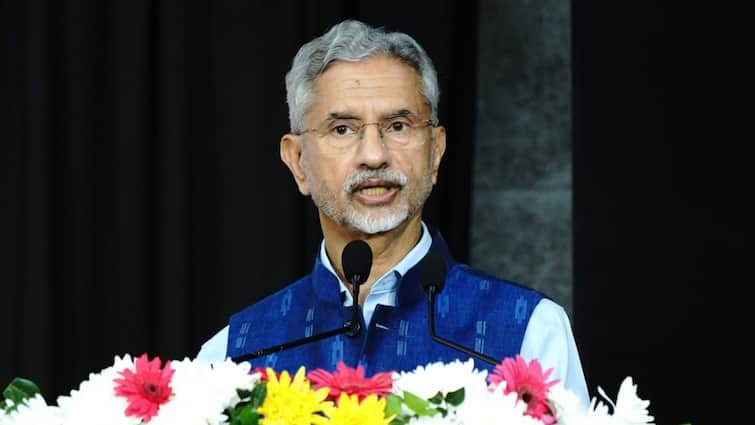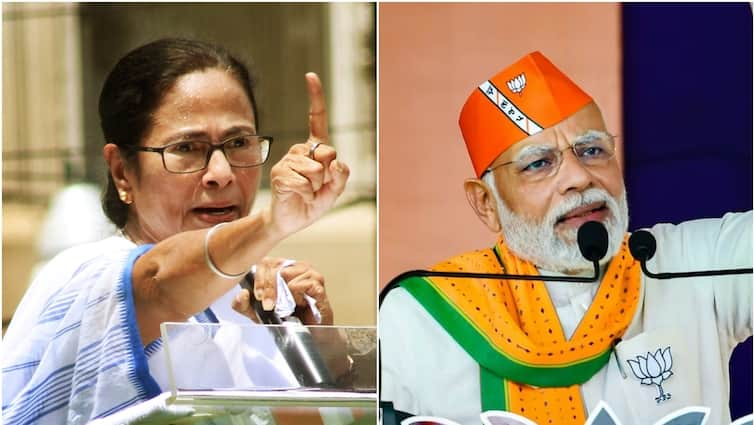External Affairs Minister S. Jaishankar on Monday reflected on India’s evolving role in an unpredictable world as he delivered the keynote address at the inaugural Aravalli Summit held at Jawaharlal Nehru University (JNU). The event marked 70 years of the School of International Studies (SIS) and brought together diplomats, academics, and policymakers to discuss the theme “India and the World Order: Preparing for 2047.”
The two-day international conference, organised jointly by the Ministry of External Affairs and the Chintan Research Foundation, is being held on October 6 and 7 in New Delhi.
‘India’s Rise Unfolding in Turbulent Times’: Jaishankar
Reflecting on India’s growth story, Jaishankar described the country’s ascent as “an exceptional journey unfolding in a turbulent global era,” news agency ANI reported. Drawing on his personal association with JNU and SIS, he reminisced about his student days and the influence of academic learning on his diplomatic journey.
“He recalls how studying international relations at JNU has helped him during his career,” the External Affairs Minister said, expressing gratitude to his teachers and peers.
He also noted that SIS was established “at a stage of our history when we began re-engaging the world after our independence,” urging the institution to now “shift gears and undertake the task of addressing the agenda of Viksit Bharat.”
Without explicitly naming Pakistan, Jaishankar articulated India’s strategy for navigating complex regional dynamics, stressing that the country must become dominant in strength and capacity to overcome comparisons with a hostile neighbour.
Addressing a question on the concept of ‘hyphenation’—a diplomatic term referring to third parties viewing India through the prism of its rivalry with another country—Jaishankar explained where this equivalence originates.
“The first question about hyphenation. We have multiple neighbours. Some are clearly better than others. And the hyphenation normally happens with a neighbour who is not so nice,” the External Affairs Minister stated.
He clarified that de-hyphenation is the goal, meaning that global decisions concerning India should not be influenced by its relationship with that neighbour. “Now, you have to understand when we say de-hyphenation, that means it’s our objective and our approach that decisions made by third countries about us are not made keeping that relationship as the lens or as the factor of calculation or factor of primary calculation. Now, that doesn’t necessarily mean that they would accommodate us,” he added.
‘Can’t Wish Away Difficult Neighbour’: Jaishankar Opines On Achieving De-Hyphenation
Minister Jaishankar highlighted the competitive realities of global politics, noting that some countries will always try to use regional tensions to their advantage. He asserted that the most effective way for India to counter such attempts and achieve de-hyphenation is through national growth.
“I think you will always see attempts, you know, to balance us off or to, if there is a situation, to use that situation for their own ends. That is the competitive nature of international politics,” the Minister observed.
Offering his prescription for a definitive shift in global perception, he said, “From our perspective, you know, the best way of de-hyphenation is frankly to outstrip the other party in terms of power and capability.”
The Minister, a former diplomat who served across several decades, offered a historical perspective on how India’s standing has fundamentally changed. While remarking that India “cannot wish away a difficult neighbour,” he said that the days of simple equivalence are over.
“And today, you know, I can tell you as a person who travels, meets people, I’ve just come from a UN session. The kind of equivalence that I would hear when I joined the Foreign Service, when I left JNU and entered the Foreign Service in the 1970s, Ambassador (Kanwal) Sibal would vouch for a decade before that. Nobody talks like that anymore,” Jaishankar remarked.
He reiterated the unavoidable nature of the reality on the ground, saying, “So, I cannot wish away a difficult neighbour. I mean, that is a reality, however unpleasant it may be.”
Jaishankar on Global Flux, ‘Weaponisation of Everything’
Highlighting the magnitude of geopolitical upheaval, Jaishankar observed, “It appears that it is India’s destiny that its rise take place in an exceptionally turbulent era. When I look back at my research on the evolution of a global order in the aftermath of a World War, it seems almost glacial in comparison to the mega changes that we are witnessing today.”
He said the world was witnessing a shift “away from the promise of cooperation” and was instead driven by the “weaponisation of everything”, news agency PTI reported. The Minister noted that nations now face growing predicaments amid such volatility, requiring India to navigate with strategic foresight.
“The challenge is to read this complex landscape,” he remarked, adding that India must safeguard its national interests while continuing to climb the global hierarchy. From India’s standpoint, Jaishankar said, the forces of “demand, demographics and data” would propel the nation’s ascent towards 2047.
He pointed to sweeping structural shifts across global systems, saying, “A third of global manufacturing has moved to a single geography, with attendant consequences for supply chains. There is rising anti-globalization sentiment in many societies. Trade calculations are being overturned by tariff volatility. The global energy scenario has changed profoundly with the US becoming a major fossil fuel exporter and China a key renewable one.”
On the changing nature of warfare and technology, Jaishankar remarked, “The quality of weaponry and the nature of war itself has been transformed, making it more stand-off, more impactful and definitely more risk-prone.”
He warned that these developments have serious implications for global order. “We see an erosion in sovereignty facilitated by tech penetration and manipulation. Global rules and regimes are being revisited and at times even discarded. Cost is no longer the defining criteria for economic transactions; ownership and security are equally so,” he said.
‘Strategic Autonomy’ Key to India’s Foreign Policy: Jaishankar
Defending India’s independent foreign policy approach, Jaishankar asserted, “Imagine if you were not today adopting strategic autonomy. Please tell me which country in the world would you like to join up with and put your future in their hands?”
He added, “The more turbulent and unpredictable the global order becomes, the stronger the case for multi-alignment or strategic autonomy. It actually becomes stronger, not weaker.”
The Minister noted that the world was witnessing “more competition and less compacts,” with “the needle shifting towards an intersection of interests and away from the promise of cooperation.”
He stressed that India must continue its upward trajectory despite volatility. “While the majority are struggling to cope or busy defending their interests, India has to strategize and continue rising amidst such volatility,” he remarked.
Jaishankar’s Call for Renewed Academic Vision
Encouraging greater scholarly engagement, Jaishankar called upon students and researchers to “create the ideas, concepts, terminology, explanations and narratives for the journey towards 2047,” adding that institutions such as SIS would be pivotal in shaping India’s intellectual and strategic thought.
Concluding his address, he expressed optimism about SIS’s role in the decades ahead. “I have every confidence that it will grow from strength to strength and live up to the promise of its very distinguished history,” Jaishankar said, as per ANI.



